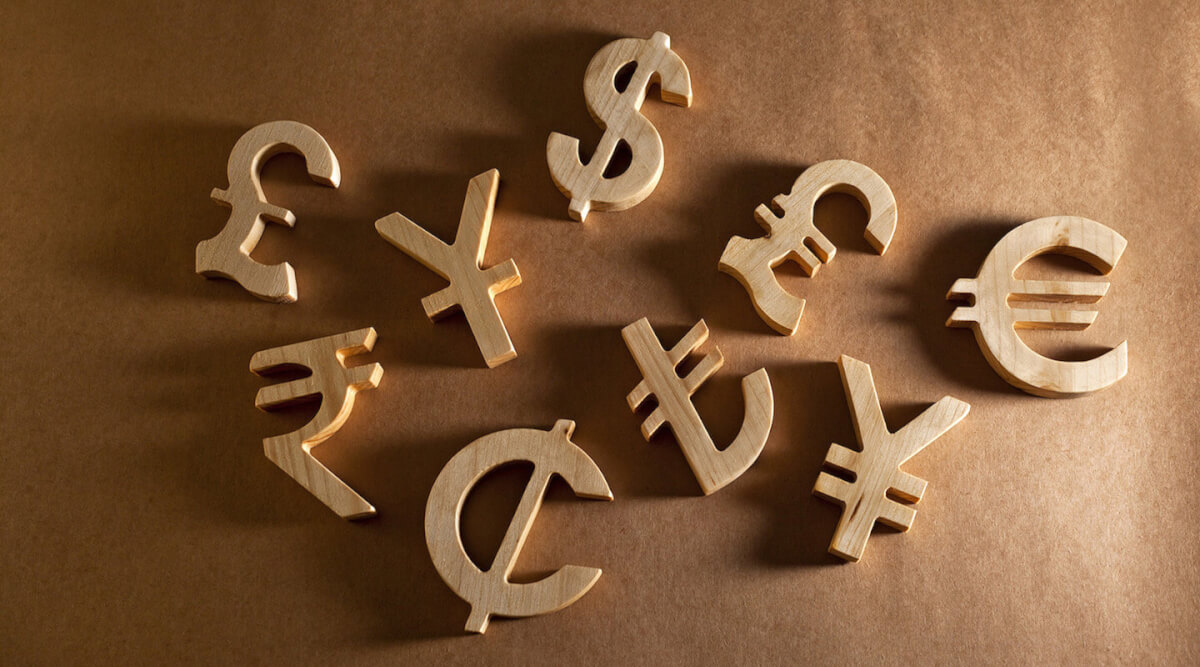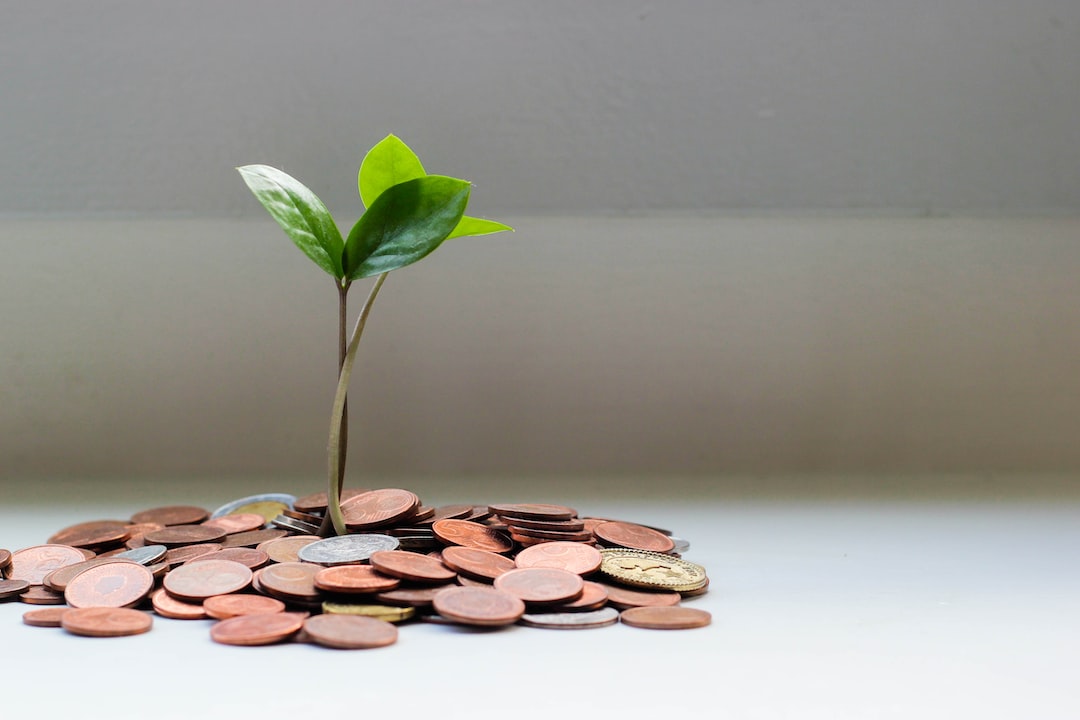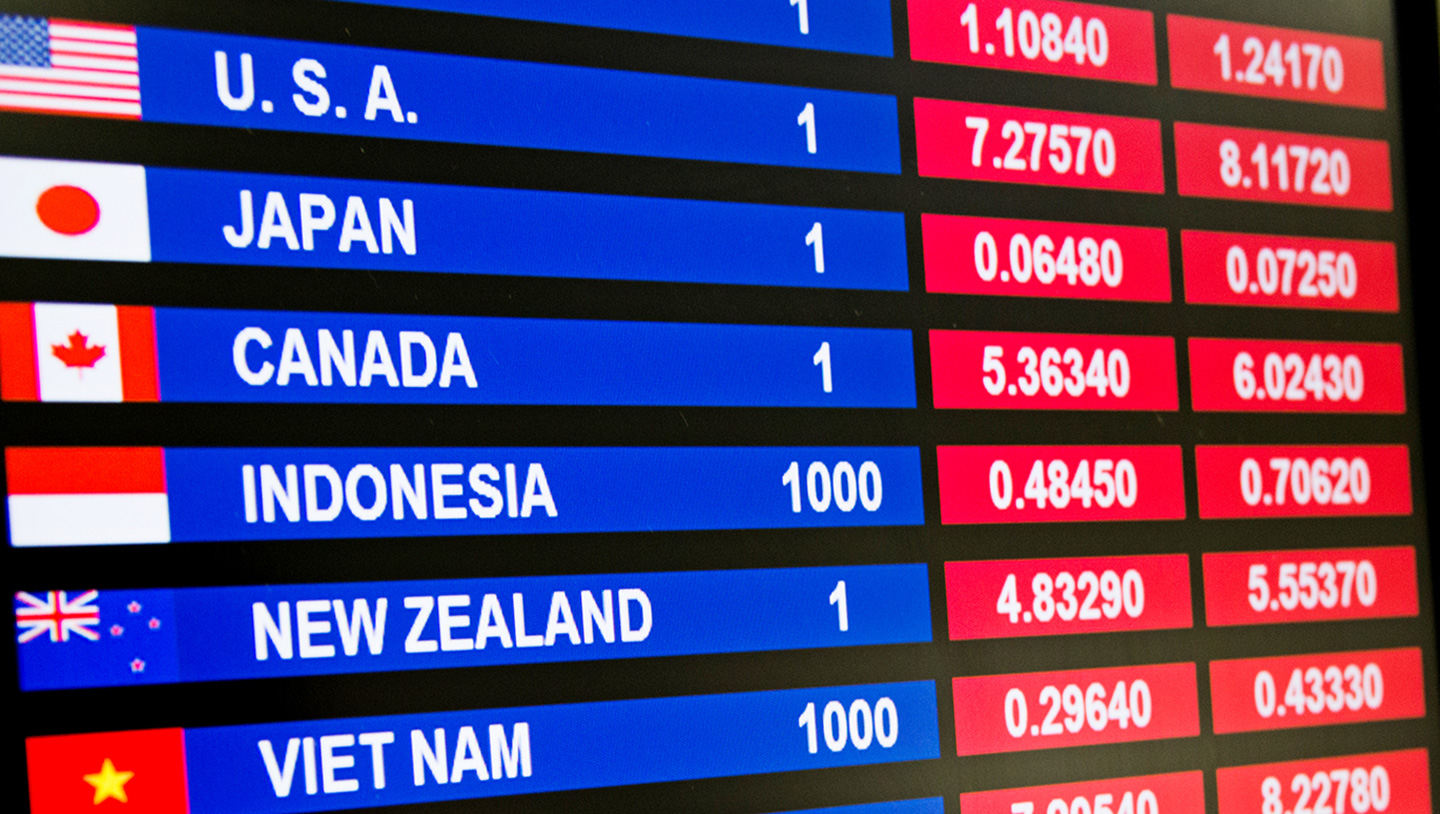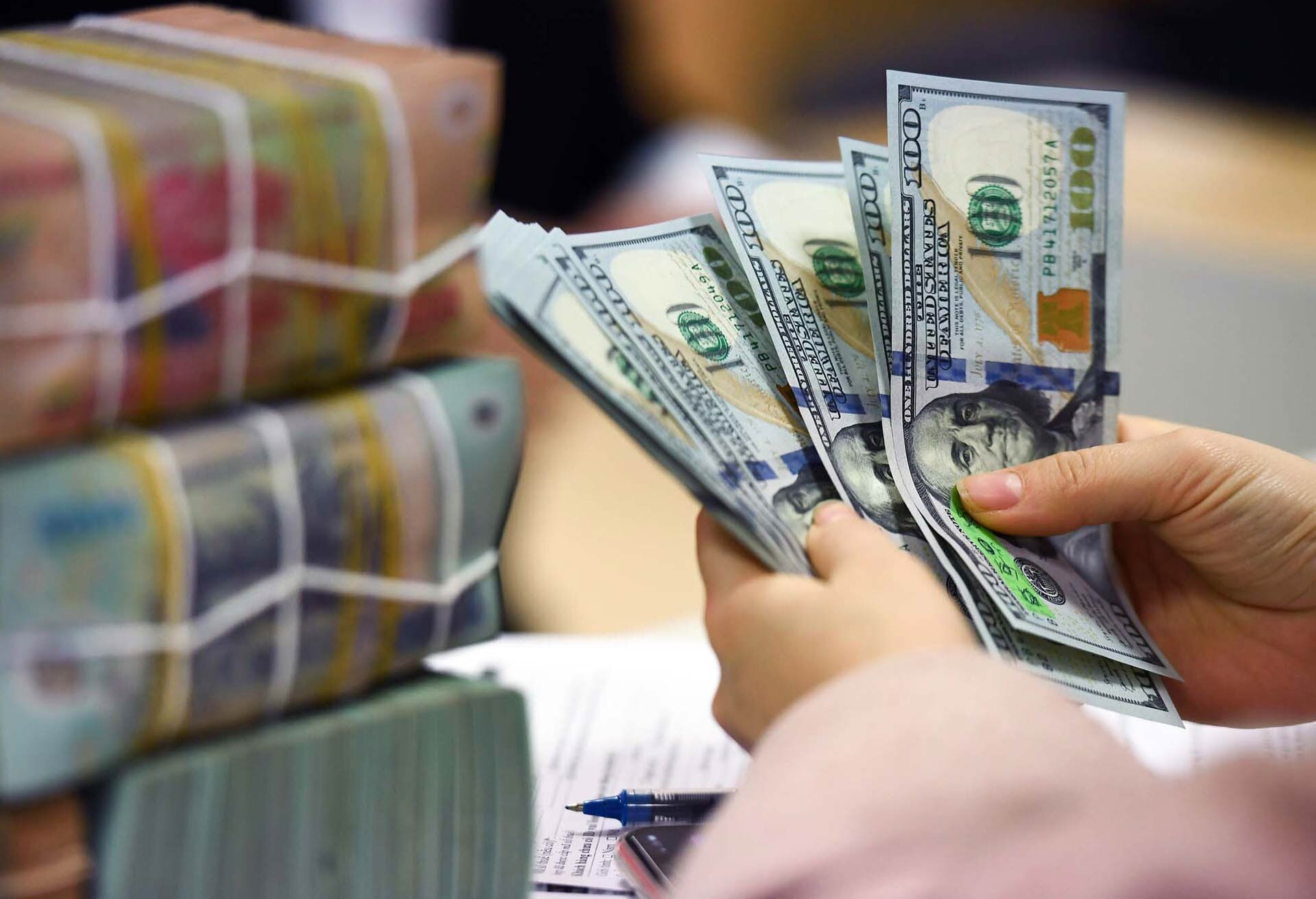Currently, the use of foreign exchange such as USD, EUR, and gold for pricing, conversion, and payment in business transactions in Vietnam occurs quite common. However, Vietnamese law stipulates that most transactions within the territory of Vietnam must be conducted in Vietnamese dong (VND), with only a few exceptions permitted to use foreign exchange. Violating this regulation may result in administrative fines and other legal consequences.
1. What is foreign exchange?
Foreign exchange includes:
- Foreign currency: Currencies of other nations or the common European currency and other common currencies used in international and regional payments.
- Foreign currency payment instruments such as cheques, credit cards, bills of exchange, promissory notes, and other similar payment methods.
- All types of valuable papers denominated in foreign currencies, including government bonds, corporate bonds, term bonds, shares, and other valuable papers.
- Gold belonging to the foreign exchange reserves of the State, gold in overseas accounts of residents, and gold in the form of bullion, bars, granules, and plates brought into or taken out of the territory of Vietnam.
- The currency of the Socialist Republic of Vietnam in cases where it is remitted into or out of the territory of Vietnam or used as an instrument for international payments.

2. What is a resident according to the banking regulations?
A resident means any of the following entities:
- Credit institutions, foreign banks’ branches established and carrying on business activities in Vietnam as prescribed in Law on credit institutions;
- Economic organizations not being credit institutions, established and carrying on business activities in Vietnam (hereinafter referred to as economic organizations);
- State agencies, units of the armed forces, political organizations, socio-political organizations, socio-political-professional organizations, social organizations, socio-professional organizations, social funds, and charitable funds of Vietnam operating in Vietnam;
- Representative offices in foreign countries of the entities stipulated in points a, b, and c of this clause;
- Diplomatic representative agencies, consulate representative agencies, and representative agencies at international organizations of Vietnam in foreign countries;
- Vietnamese citizens residing in Vietnam; Vietnamese citizens residing overseas for a duration of less than 12 months; and Vietnamese citizens working for any of the organizations stipulated in points d and dd this clause and the individuals accompanying such citizens;
- Vietnamese citizens traveling overseas for purposes of tourism, study, medical treatment or visits;
- Foreigners are allowed to reside in Vietnam for a duration of 12 months or more. For foreigners coming to Vietnam for study, medical treatment, tourism, or to work for diplomatic representative agencies, consulates or representative agencies of international organizations in Vietnam, representative offices of foreign organizations in Vietnam irrespective of term shall be cases not belong to subjects as residents;
- Branches in Vietnam of foreign economic organizations, forms of presentation in Vietnam of the foreign parties joining in investment operations as prescribed by law on investment, executive office of foreign contractors in Vietnam.

3. Is it allowed to use foreign exchange for transactions in Vietnam?
Within the territory of Vietnam, all transactions, payments, listings, advertisements, quotations, pricing, writing prices on contracts, agreements, and other similar forms of residents and non-residents must not be conducted in foreign exchange, except for exceptional cases permitted in accordance with regulations of the State Bank of Vietnam.
4. The exceptional cases permitted to use foreign exchange in Vietnam
Pursuant to Article 4 Circular 32/2013/TT-NHNN, there are 17 types of transactions is allowed organizations and individuals to use foreign exchange, including the 05 most common types of transactions:
4.1. Internal capital transfers within enterprises
Residents being entities with legal person status are allowed to transfer internal capital in foreign exchange between their accounts with accounts of their dependent units that have no legal person status and vice versa.
Example: A foreign-owned company based in Hanoi, Vietnam, with a branch in Ho Chi Minh City, wishes to transfer capital in USD between its accounts for internal capital transfer purposes. This transaction is permitted.
4.2. Capital contribution for implementing foreign investment projects in Vietnam
Residents are allowed to contribute capital in foreign exchange by transfer in order to perform foreign investment projects in Vietnam.
Example: A foreign investor, holding a 02-year Vietnam Temporary Resident Card, intends to transfer an investment capital of $10,000 via bank to the Direct Investment Capital Account in USD currency of his newly-established foreign-owned company. This transaction is permitted.
4.3. Salary payment for employees
Residents and non-residents being organizations are allowed to make agreements and pay salaries, bonuses, and allowances in labor contracts in foreign exchange by transfer or cash to non-residents and residents who are foreigners working in such organizations.
Example: A Vietnamese company employs foreign workers in Vietnam. The company may pay these workers salaries in foreign currency via bank transfers or cash payments as stipulated in the labor contract.
4.4. Receiving payments through the provision of goods, services
Non-residents are allowed to write price in the contract in foreign currency and make payment for the export of goods, services in foreign currency via bank transfer to residents. Residents are allowed to quoted, write priced in foreign currency and receive payment in foreign currency via bank transfer when providing goods or services to non-residents.
Example: A Vietnamese company provides IT services to a foreign company overseas. The Vietnamese company can quote its services and receive payments in foreign currency through bank transfers.
4.5. Non-residents are allowed to transfer in foreign currency for other non-residents
Example: A foreigner staying in Vietnam with a 3-month e-visa, providing cross-border services, receives payment from a client in the United States via USD currency bank transfer. This transaction is permitted.

5. Legal consequences of illegal using foreign exchange in Vietnam
Firstly, banks would reject the transaction: if the parties involved in the transaction use foreign exchange to conduct it, but fall under circumstances where the use of foreign exchange is not permitted. In such cases, the transaction will be refused by the bank.
Secondly, administrative penalties for violations: according to Decree 88/2019/ND-CP, the use of foreign exchange in cases where it is not permitted may result in administrative penalties depending on the nature and severity of the violation, as follows:
| Penalty | Behavior |
| Warning | Failing to comply with legal regulations when selling and buying foreign currency with total value of less than USD 1,000 |
| A fine ranging from VND 10,000,000 to VND 20,000,000 | Failing to comply with legal regulations when selling and buying foreign currency with total value ranging from USD 1,000 to under USD 10,000 |
| Failing to comply with legal regulations when selling and buying foreign currency with total value of less than USD 1,000 in case of any repeat or serial violation | |
| A fine ranging from VND 20,000,000 to VND 30,000,000 | Failing to comply with legal regulations when selling and buying foreign currency with total value ranging from USD 10,000 to under USD 100,000 |
| Failing to comply with legal regulations when selling and buying foreign currency with total value of less than USD 10,000 in case of any repeat or serial violation | |
| A fine ranging from VND 80,000,000 to VND 100,000,000 | Failing to comply with legal regulations when selling and buying foreign currency with total value of more than USD 100,000 |
Note: The fine amount is imposed on individuals. For organizations committing the same violation, the fine will be twice the fine amount imposed on individuals.
Additional penalty: Foreign currency, Vietnamese dong shall be confiscated in most cases.
Nova Law hopes that the above article has clearly introduced the regulations of Vietnamese law regarding the restriction of using foreign currencies within Vietnamese territory, as well as the legal risks involved in case of violation.






